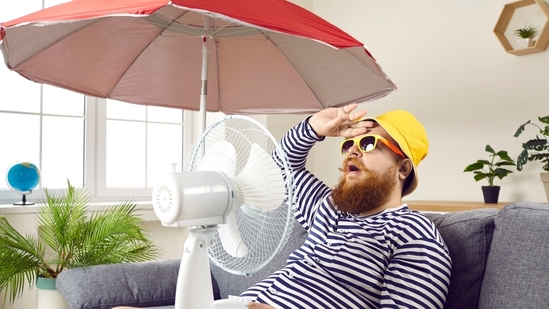After a long stretch of uncertainty and restrictions, many Americans are finally ready to take that much-needed vacation. Whether you’re planning a beachside escape, a national park road trip, or a visit with family, getting away can be a much-deserved source of rest and rejuvenation. But before you pack your bags, it’s important to remember that safe travel still requires a bit of planning.
Dr. Parvathi Somasundaram, Medical Director at Bayhealth Occupational Health, offers expert insight on how to stay healthy while you’re on the move—whether you’re vaccinated, unvaccinated, traveling domestically, or heading abroad.

Why Safe Travel Is Still Essential in 2025
While COVID-19 restrictions have eased significantly and vaccination rates have increased, the virus and its variants continue to circulate in some areas. Guidelines from the Centers for Disease Control and Prevention (CDC) are constantly evolving, and understanding them is crucial for safe travel planning.
Check the CDC Travel Guidelines Before You Go
Before making any travel plans, visit the CDC’s Travel Guidelines to check current recommendations for your destination. The site offers specific guidance for:
- Vaccinated travelers
- Unvaccinated individuals
- Domestic travel within the U.S.
- International travel requirements
Understanding these rules helps you avoid disruptions and protects your health and others around you.
Vaccination Status and What It Means for Travel
If you’re fully vaccinated—defined as two weeks after your second Pfizer/Moderna dose or two weeks after the Johnson & Johnson shot—you have more flexibility when it comes to travel. However, there are still circumstances where precautions are necessary.
When Should Vaccinated People Still Wear Masks?
Even if you’re vaccinated, masks may still be required or recommended:
- On public transportation like planes, buses, and trains
- In airports and transportation hubs
- In crowded outdoor settings, like concerts or amusement parks
- When visiting healthcare facilities
- If you’re immunocompromised or traveling with someone who is
Always carry a few extra masks just in case local mandates or venue policies require them.
Should You Get Tested Before Traveling?
Testing for COVID-19 is no longer mandatory for most domestic or international destinations, but it’s still a smart safety step.
Some countries and airlines may still require proof of a negative test, especially for unvaccinated travelers. Always confirm requirements at least a week before departure.
Travel Prepared: Health and Safety Essentials
No matter where you’re headed, preparation is key to staying safe and avoiding travel disruptions.
Don’t Forget These Health Essentials:
- Your medical insurance card
- A list of emergency contacts
- All prescription medications in original packaging (with enough to cover your full trip)
- Hand sanitizer and disinfectant wipes
- Travel-sized first aid kit
If you have chronic conditions or special medical needs, consult your healthcare provider before leaving town.
Planning Outdoor Adventures? Gear Up Safely
Planning to reconnect with nature? Summer is the perfect time for hiking, biking, kayaking, and exploring—but outdoor activities carry their own safety risks.
Outdoor Travel Safety Checklist:
- Wear proper footwear to prevent slips or injuries
- Pack hydration—bring extra water
- Use sunscreen with SPF 30 or higher
- Apply insect repellent to prevent bug bites and ticks
- Bring maps, flashlights, and a whistle for remote hikes
- Stay aware of local wildlife and weather patterns
When exploring unfamiliar areas, share your itinerary with someone and avoid hiking alone, especially in remote locations.
Mental Health: Don’t Overpack Your Itinerary
Travel is a great way to recharge, but don’t let a jam-packed schedule undo the benefits of your getaway. Make time for rest, sleep, and self-care.
Traveling with Kids? Add Extra Layers of Safety
If you’re traveling with children, make sure you:
- Bring child-safe face masks and hand sanitizer
- Prepare healthy snacks and hydration for the journey
- Teach them how to stay safe in airports, rest stops, and hotels
- Keep them in sight, especially in crowded tourist areas
Frequently Asked Questions:
Q1: Do I still need to wear a mask when traveling if I’m vaccinated?
A: Yes, in certain settings like planes, buses, and crowded public places. Always carry a mask and check local rules before traveling.
Q2: Is COVID-19 testing required for domestic travel in 2025?
A: Not typically required, but highly recommended before flying. Always check airline and destination guidelines for updates.
Q3: What health documents should I bring on vacation?
A: Bring your medical insurance card, COVID-19 vaccination record (if applicable), and enough prescription medications for the full trip.
Q4: Can I travel if I’m immunocompromised?
A: Yes, but take extra precautions—wear a mask, avoid crowds, and consult your doctor before leaving.
Q5: What’s the safest way to travel with kids?
A: Plan ahead, bring child-specific safety supplies, and supervise them closely in public or outdoor environments.




